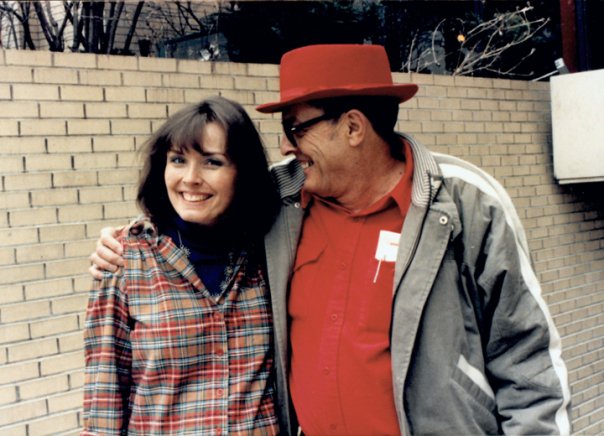If you could no longer speak for yourself, would the people who love you know your final wishes? If they did, could you count on them to carry them out?
Have you even thought about what your wishes might be?
I remember how freaked out I was when I heard the doctor pose the question to my father, who had lots of health problems in the last years of his life. He responded immediately that he wanted no extraordinary measures — he’d had a great life and when his time came to just let him go.
I was grateful to be in on that conversation because it not only forced me to face reality, it also opened the door to further discussions with my parents.
If you’d like to start a conversation with your family, but you’re not sure where to begin, Caring Connections, a program of the National Hospice and Palliative Care Organization, is an extremely informative website that “provides people with information and support when they are planning ahead, caring for a loved one, living with an illness or grieving a loss.”
Planning ahead checklist
I’ve taken the liberty of copying a comprehensive planning ahead checklist from Caring Connections.
- Get the information you need to make informed choices about end-of-life care.
- Get to know end-of-life care services that are available to you such as hospice and palliative care providers by going to the National Hospice and Palliative Care Organization’s website.
- Discuss your thoughts, concerns and choices with your loved ones.
- Talk to your doctor about different treatments.
- Establish advance directives (a living will and medical power of attorney) for your state.
- Talk to your healthcare agent, family and doctor about your choices.
- Discuss your choices often, especially when your medical condition changes.
- Keep your completed advance directives in an accessible place.
- Give photocopies of the signed originals to your healthcare agent, alternate agents, doctor, family, friends, clergy and anyone else who might be involved in your healthcare.
- Assess your financial situation, create a financial inventory and determine what end-of-life goals you want to accomplish that involve money.
- Learn about the cost of end-of-life care, how medical bills and expenses will be paid for if you are not able to.
- Make financial decisions such as how you want to give your money and possessions to others upon your death.
- Prepare for the time when you cannot handle money matters; appoint a durable power of attorney.
- Plan your funeral/memorial service.
Advance directives
Following the doctor’s suggestion, my parents made out their advance directives, which included a living will and medical power of attorney.
- Living will — a legal document that spells out what medical treatments and life-sustaining measures you would or wouldn’t want if you were terminally ill or seriously injured and could no longer communicate.
- Medical power of attorney — a legal document that designates who you want to make your medical decisions if you can’t.
After completing their advance directives, my parents decided they should also plan their funerals. My sister and I joined them at the funeral home for what you might think would be a totally morbid affair. It wasn’t bad at all — fairly cut and dry, in fact. We even had a good laugh when my mother discovered the interior of the coffin my father had chosen also came in blue, which is her favorite color. She quickly put in her order.
I would be lying if I said I walked away from that appointment totally unmoved. I ached at the thought of them being gone some day, but I was so glad they made their own arrangements and relieved my seven brothers and sisters and me of the responsibility.
Dad passed away on December 10, 2009. It still seems like yesterday.
In his final days, our family was able to put all of our attention to the only thing that mattered – him. Simply because he had planned ahead, put his wishes in writing and shared them with the people who loved him.
Advance directive forms are fairly easy to fill out, but they vary from state to state. You’ll find links to forms for every state on Caring Connections, as well as more useful information about planning ahead.The
To download the Maine Advance Directives form, click here.


We are reading a wonderful book in one of my nursing classes. Is called “My Mother, Your Mother – Embracing ‘Slow Medicine,’ The Compassionate Approach to Caring For Your Aging Loved Ones.” By Dennis McCullough, M.D. It addresses a compassionate way of caring for aging parents in a face paced, high tech medical world. It also addresses the importance of initiating early conversations. I think it is worth reading.
Thanks for the recommendation Jess. I’ve heard of “slow medicine” but didn’t know about the book. I think it’s worth my reading and then passing on to my daughters!